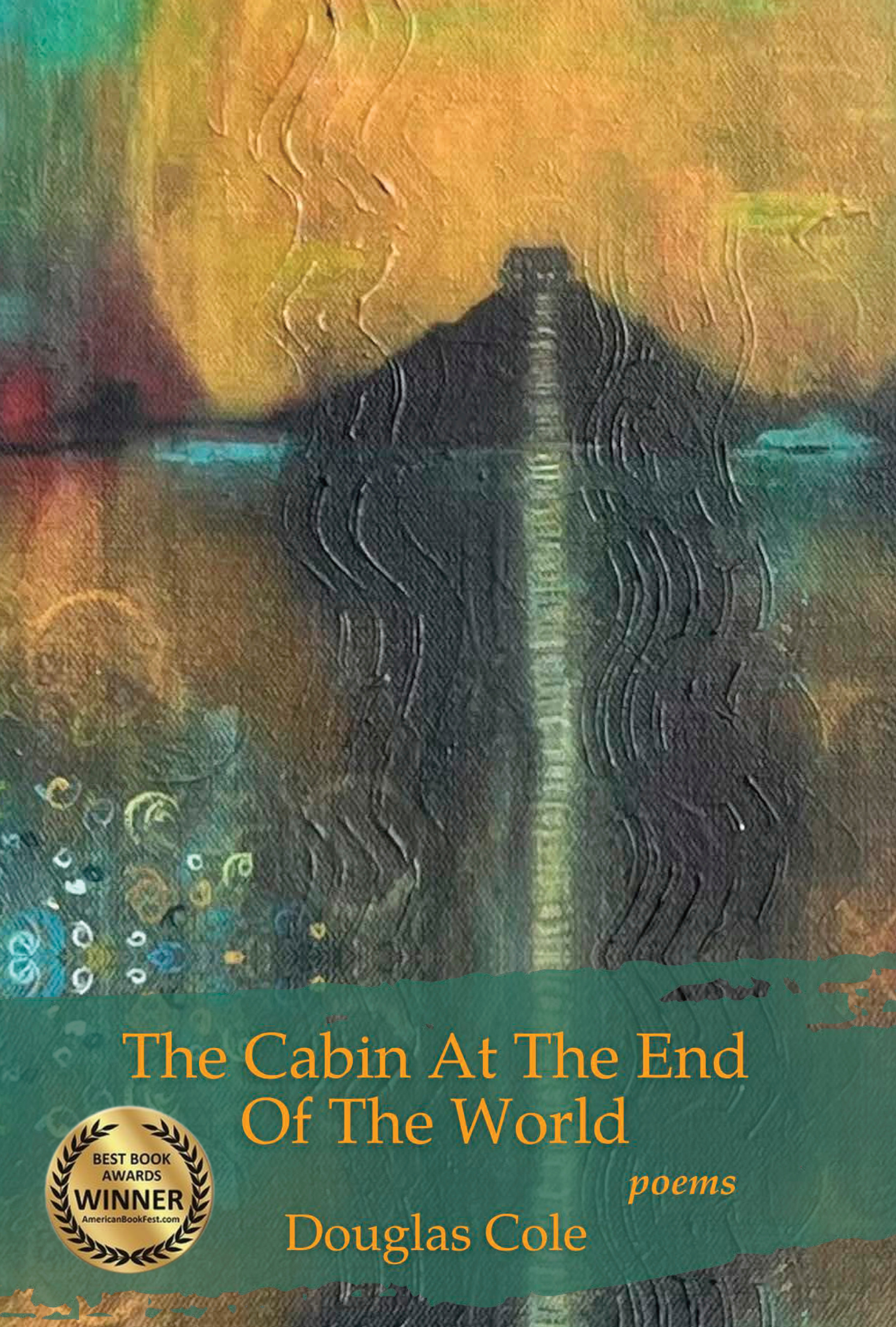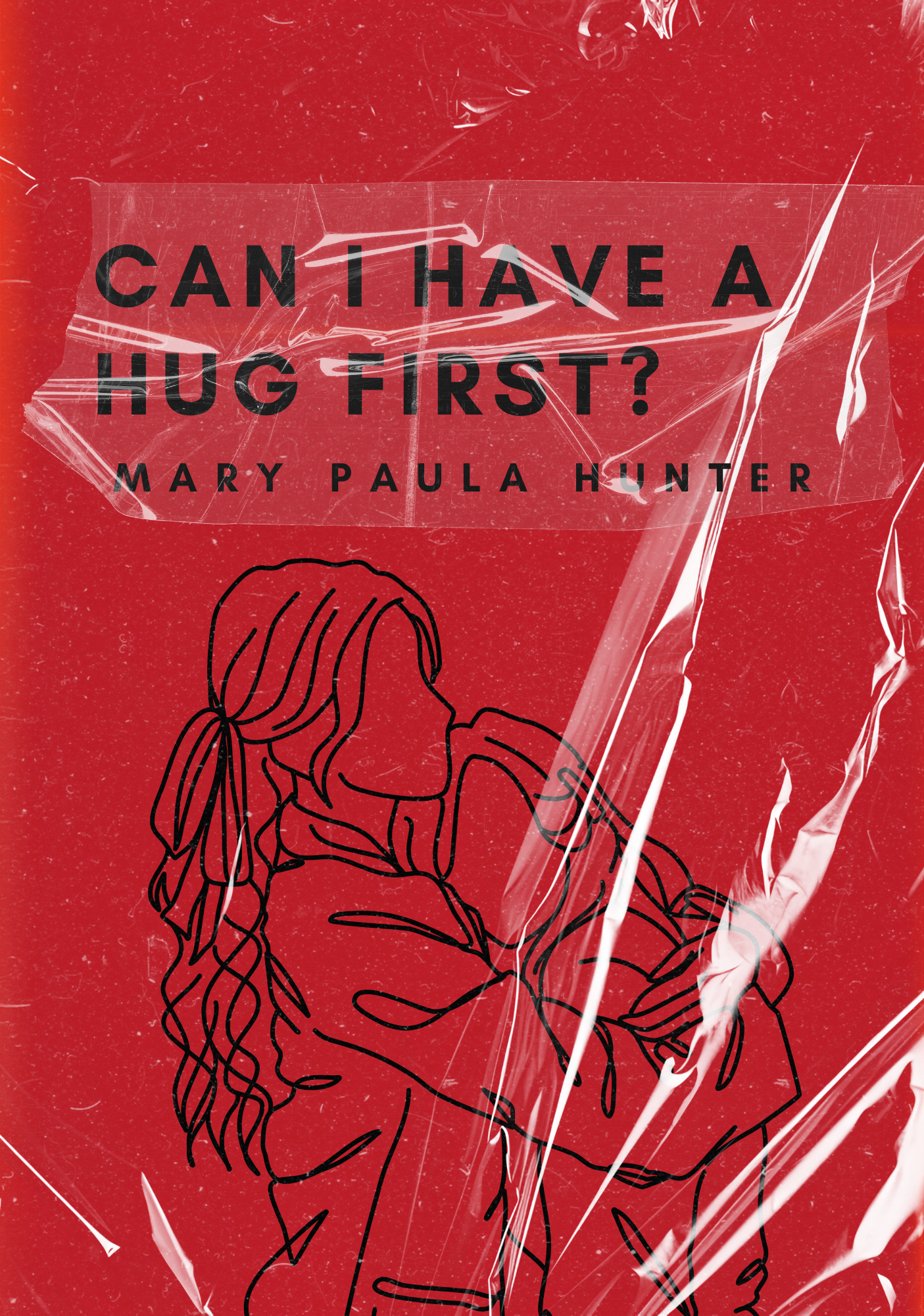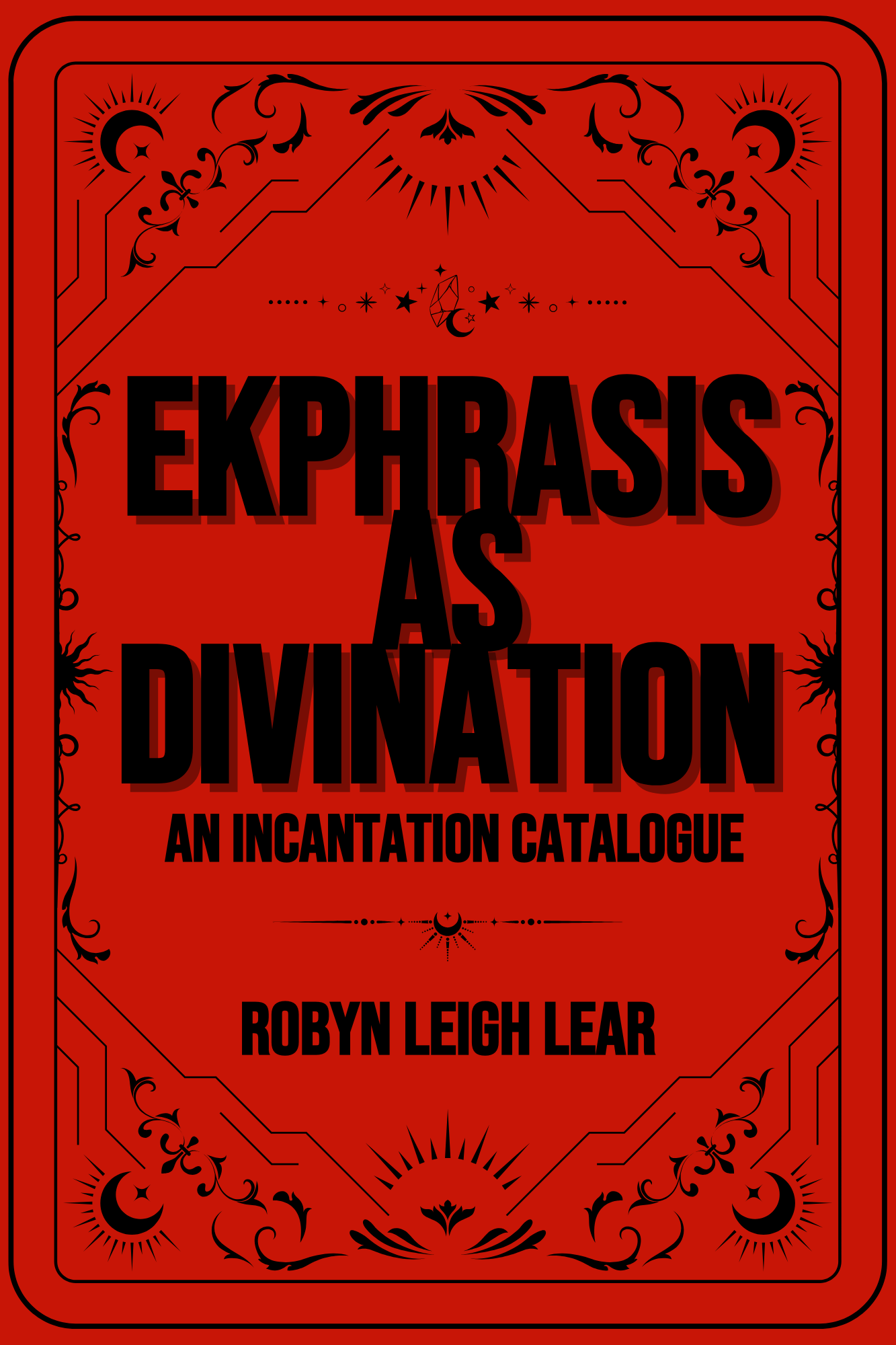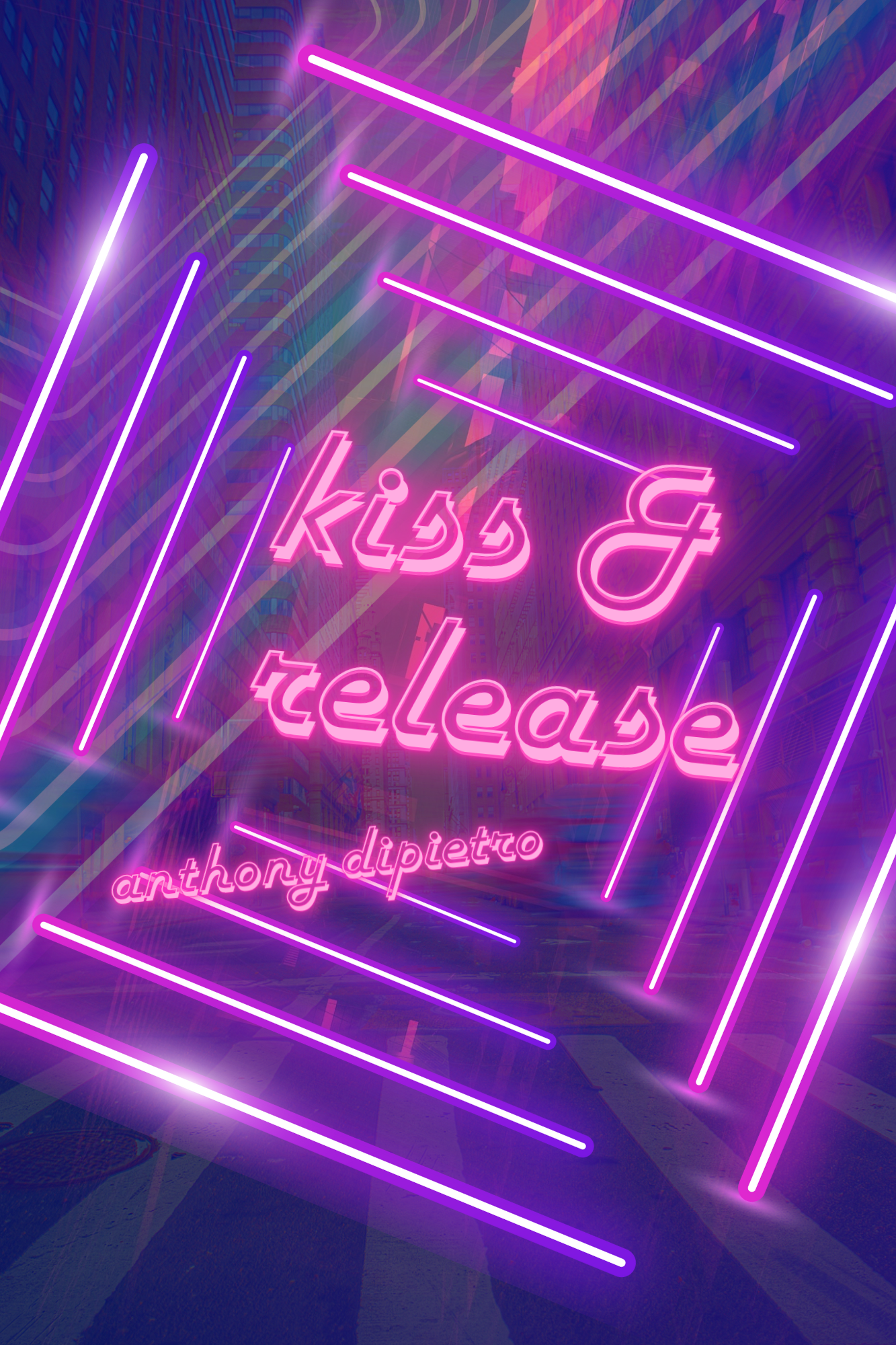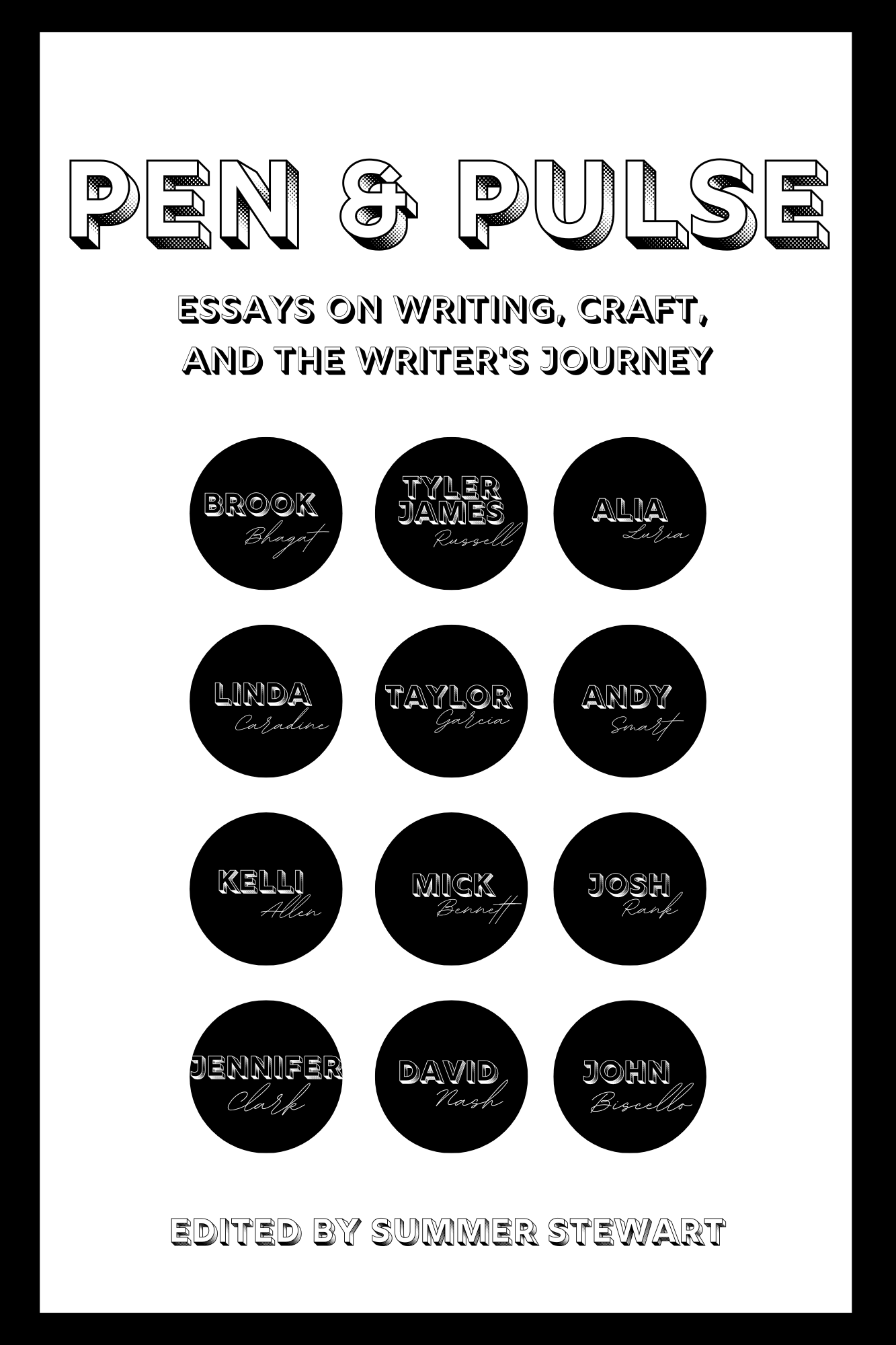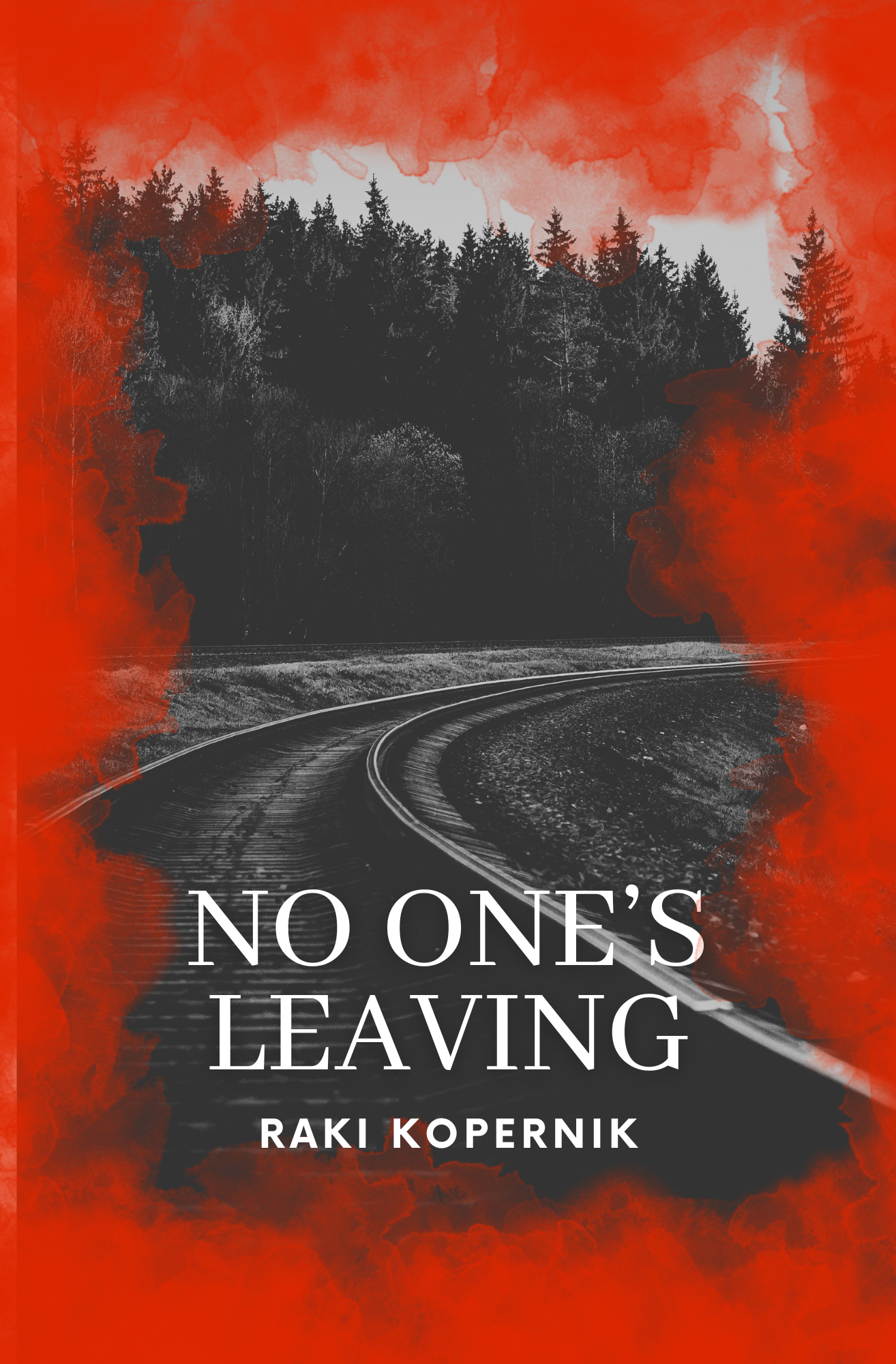THE CABIN AT THE END OF THE WORLD
A 2024 Best Book Awards Winner for Urban Poetry, and Finalist in both the Narrative and Contemporary Poetry categories, THE CABIN AT THE END OF THE WORLD is Douglas Cole’s first poetry collection to explore the prose poem. Inspired by Charles Baudelaire, Octavio Paz, Claudia Rankine and James Wright, Cole tells a tale of the world in fragmentary, dreamlike poems rich in musical language that retains a mystery bringing readers back again to see what shimmers at the edge of the page. If the finger pointing at the moon is not the moon, then these poems are visions wrought in moonlight.
In classical Chinese Zen painting, nature is large, human presence often nothing more than a tiny hut. In the Tradition of Mountains and Rivers, clarity of vision comes most often with a journey up and out of the world of political intrigues and warfare and pettiness. A similar vision comes through the poetry in The Cabin at the End of the World. But as the 12th-century Zen poet, Ikkyu, also known as Crazy Cloud, writes: one cannot truly experience enlightenment in seclusion. It must happen in the world, in a lover’s kiss, in a night of revelry and drinking. Just so, THE CABIN AT THE END OF THE WORLD explores truth and beauty in the world of people and their lives, and even when we do reach the Mountain and Rivers in the section titled “Windows of the Sea,” human remnants, outposts, graves and ghosts still hover close under the surface. Any “escape” is directly confronted and put away. Here in the world we find paradise.
A 2024 Best Book Awards Winner for Urban Poetry, and Finalist in both the Narrative and Contemporary Poetry categories, THE CABIN AT THE END OF THE WORLD is Douglas Cole’s first poetry collection to explore the prose poem. Inspired by Charles Baudelaire, Octavio Paz, Claudia Rankine and James Wright, Cole tells a tale of the world in fragmentary, dreamlike poems rich in musical language that retains a mystery bringing readers back again to see what shimmers at the edge of the page. If the finger pointing at the moon is not the moon, then these poems are visions wrought in moonlight.
In classical Chinese Zen painting, nature is large, human presence often nothing more than a tiny hut. In the Tradition of Mountains and Rivers, clarity of vision comes most often with a journey up and out of the world of political intrigues and warfare and pettiness. A similar vision comes through the poetry in The Cabin at the End of the World. But as the 12th-century Zen poet, Ikkyu, also known as Crazy Cloud, writes: one cannot truly experience enlightenment in seclusion. It must happen in the world, in a lover’s kiss, in a night of revelry and drinking. Just so, THE CABIN AT THE END OF THE WORLD explores truth and beauty in the world of people and their lives, and even when we do reach the Mountain and Rivers in the section titled “Windows of the Sea,” human remnants, outposts, graves and ghosts still hover close under the surface. Any “escape” is directly confronted and put away. Here in the world we find paradise.
A 2024 Best Book Awards Winner for Urban Poetry, and Finalist in both the Narrative and Contemporary Poetry categories, THE CABIN AT THE END OF THE WORLD is Douglas Cole’s first poetry collection to explore the prose poem. Inspired by Charles Baudelaire, Octavio Paz, Claudia Rankine and James Wright, Cole tells a tale of the world in fragmentary, dreamlike poems rich in musical language that retains a mystery bringing readers back again to see what shimmers at the edge of the page. If the finger pointing at the moon is not the moon, then these poems are visions wrought in moonlight.
In classical Chinese Zen painting, nature is large, human presence often nothing more than a tiny hut. In the Tradition of Mountains and Rivers, clarity of vision comes most often with a journey up and out of the world of political intrigues and warfare and pettiness. A similar vision comes through the poetry in The Cabin at the End of the World. But as the 12th-century Zen poet, Ikkyu, also known as Crazy Cloud, writes: one cannot truly experience enlightenment in seclusion. It must happen in the world, in a lover’s kiss, in a night of revelry and drinking. Just so, THE CABIN AT THE END OF THE WORLD explores truth and beauty in the world of people and their lives, and even when we do reach the Mountain and Rivers in the section titled “Windows of the Sea,” human remnants, outposts, graves and ghosts still hover close under the surface. Any “escape” is directly confronted and put away. Here in the world we find paradise.
Praise for THE CABIN AT THE END OF THE WORLD
Often, the mystery is hiding in plain sight, “in the second-hand store …worn shoes with the shape of feet still in them/ you take from the shelf with a flash of the life/ that walked before now passing through you.” That there are more questions than answers is how it should be, or so it seems, on this journey into the forest, into the interior, into the self, to The Cabin at the End of the World, a book rife with beauty and inclusion. And who is most included is the reader, on this journey in language with a poet who has brought his whole life to these finely wrought poems.
—Peter Mladinic
Douglas Cole paints with an imagist’s clarity, a minimalist’s precision, and a poet’s sense of Duende. The Cabin at the End of the World is a spellbinding book which dissects and frames the fragility and intensity of the urban moment. Well done, poet!
—Jose Hernandez Diaz, author of Bad Mexican, Bad American
“I don’t mind disappearing,” writes Douglas Cole in his latest collection of poems, The Cabin at the End of the World, and so he does, allowing his robust curiosity and lyric language to become the central players in work whose subjects run from ennui to enlightenment. Whether in poems brief and tantalizing as a Zen koan, or pieces that wend their way over many pages, Cole’s unique perspectives will find readers identifying with the crab in “Winter Vision,” which, having been “snatched off the beach” by a hungry crow and born aloft, receives the gift of “seeing / in a way it’s never seen before.”
—Frank Paino, winner of a 2016 Individual Excellence Award from The Ohio Arts Council, a Pushcart Prize and The Cleveland Arts Prize in Literature, he is the author of Obscura (Orison Books), and Out of Eden (Cleveland State University Poetry Center)
Douglas Cole’s The Cabin at the End of the World is a flight through “heating ducts and beast parades” on a slowly sinking tanker, because “Who wouldn’t want their illegal cargo sunk / without a trace?” This gritty and surreal book of poems is a “dusty magic phone / you can use to call your past lives.” It’s “Death drinking ouzo in a phone booth alone.” And it’s “a mariachi band / line-dancing with ghosts in the empty air.” When you are done reading, walking in the post-book quiet, the darkness will swallow you and the city, and you will be whole.
—Scott Ferry, author of Sapphires on the Graves
In the MEDIA
About DOUGLAS COLE
Douglas Cole has published six poetry collections and the novel The White Field, winner of the American Fiction Award. His work has appeared in journals such as Beloit Poetry, Fiction International, Valpariaso, The Gallway Review and Two Hawks Quarterly; as well anthologies such as Bully Anthology (Hopewell), Bindweed Anthology, and Work (Unleash Press). He contributes a regular column, “Trading Fours,” to the magazine, Jerry Jazz Musician; edits the selections of American writers for Blue Citadel, part of Read Carpet journal of international writing produced in Columbia. In addition to the American Fiction Award, his screenplay of The White Field won Best Unproduced Screenplay award in the Elegant Film Festival, and he has been awarded the Leslie Hunt Memorial prize in poetry, the Best of Poetry Award from Clapboard House, First Prize in the “Picture Worth 500 Words” from Tattoo Highway, and the Editors’ Choice Award in fiction by RiverSedge. He has been nominated five times for a Pushcart and seven times for Best of the Net. He lives and teaches in Seattle, Washington. His website is https://douglastcole.com/.
-
Genre: Poetry
ISBN: 978-1963115062
Publication Date: August 27, 2024

